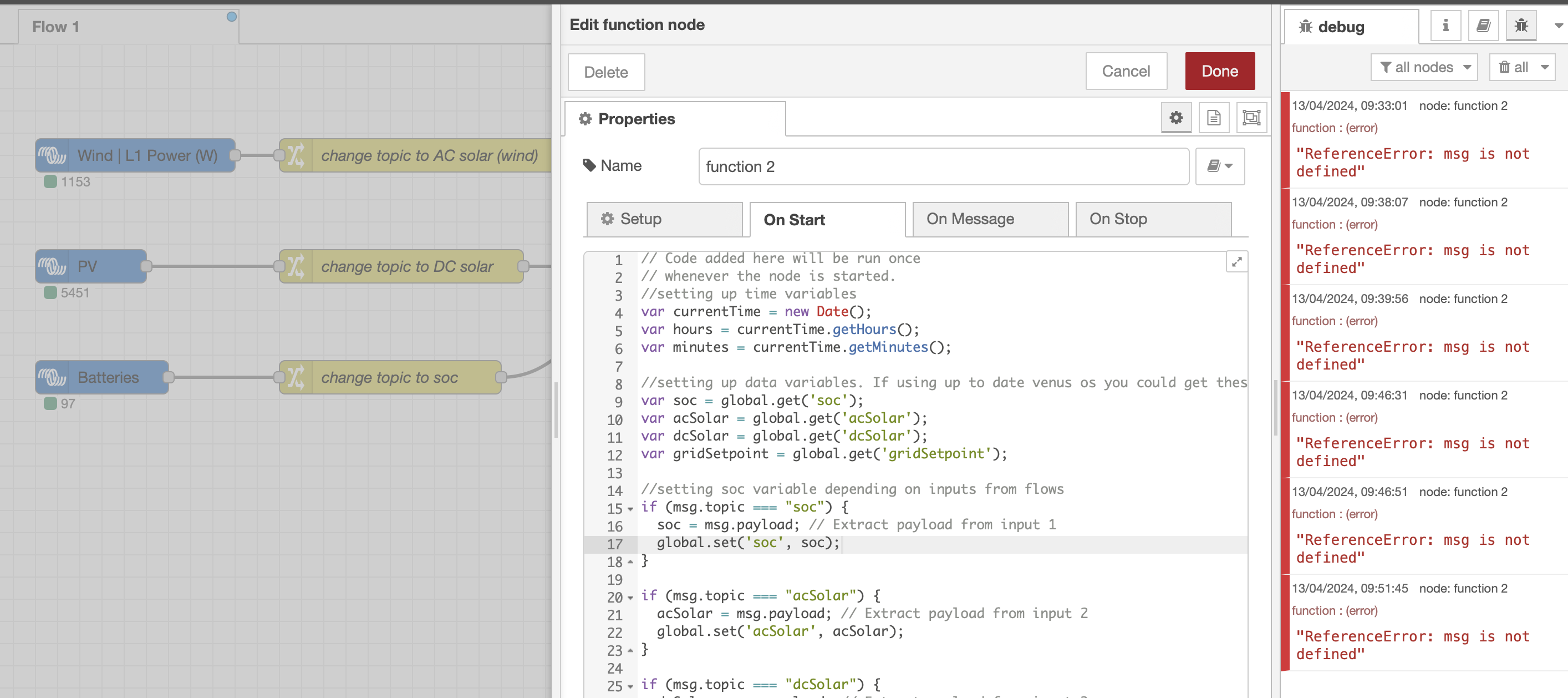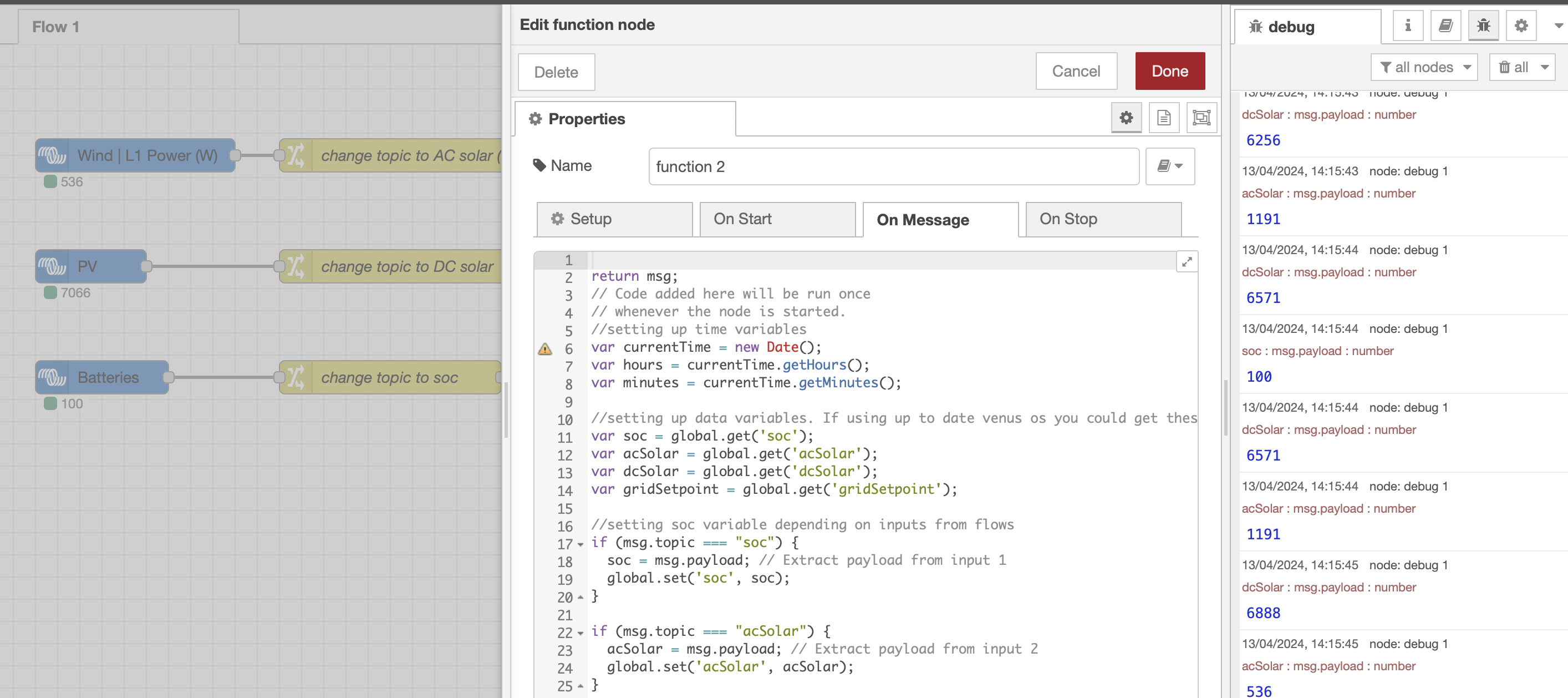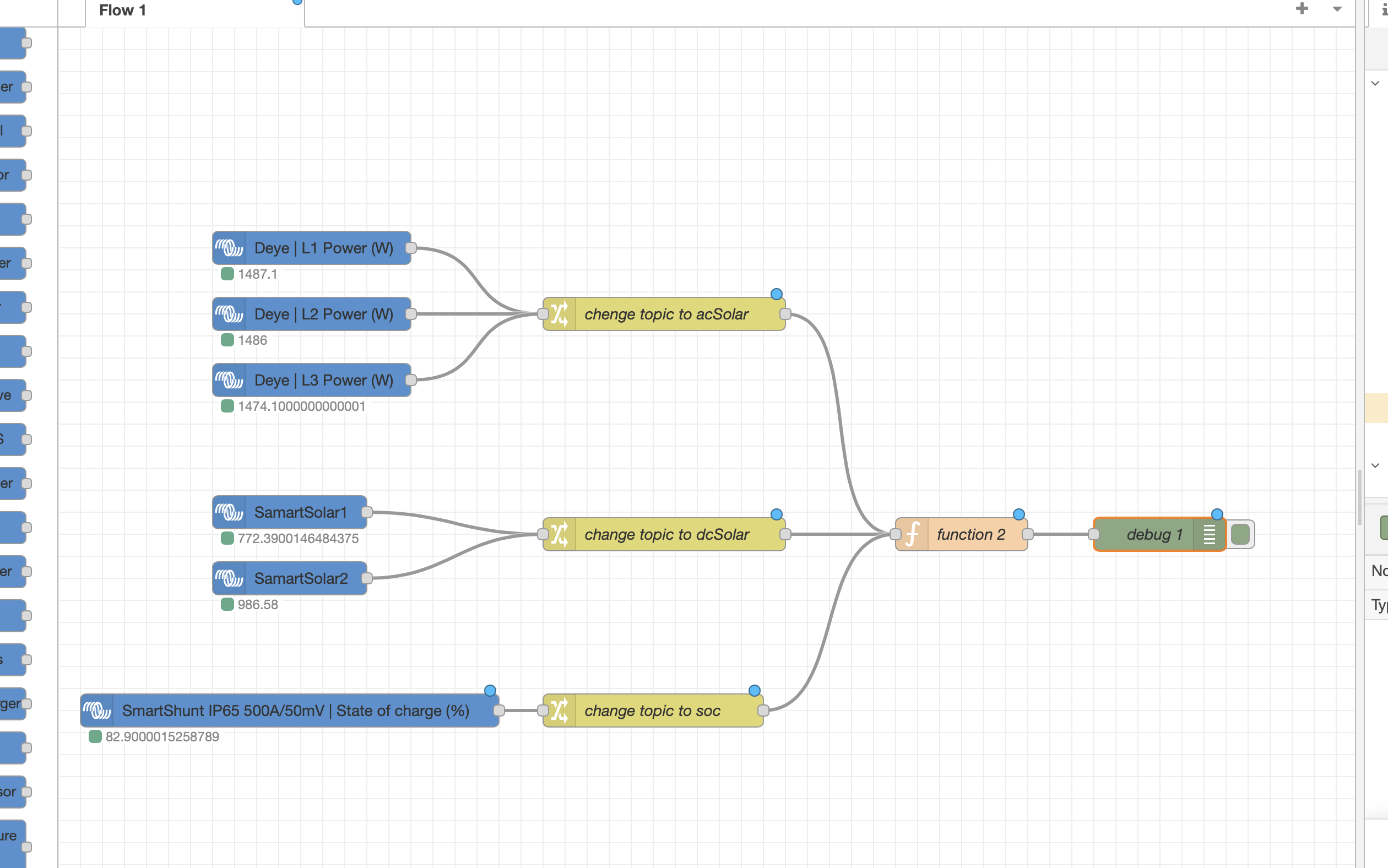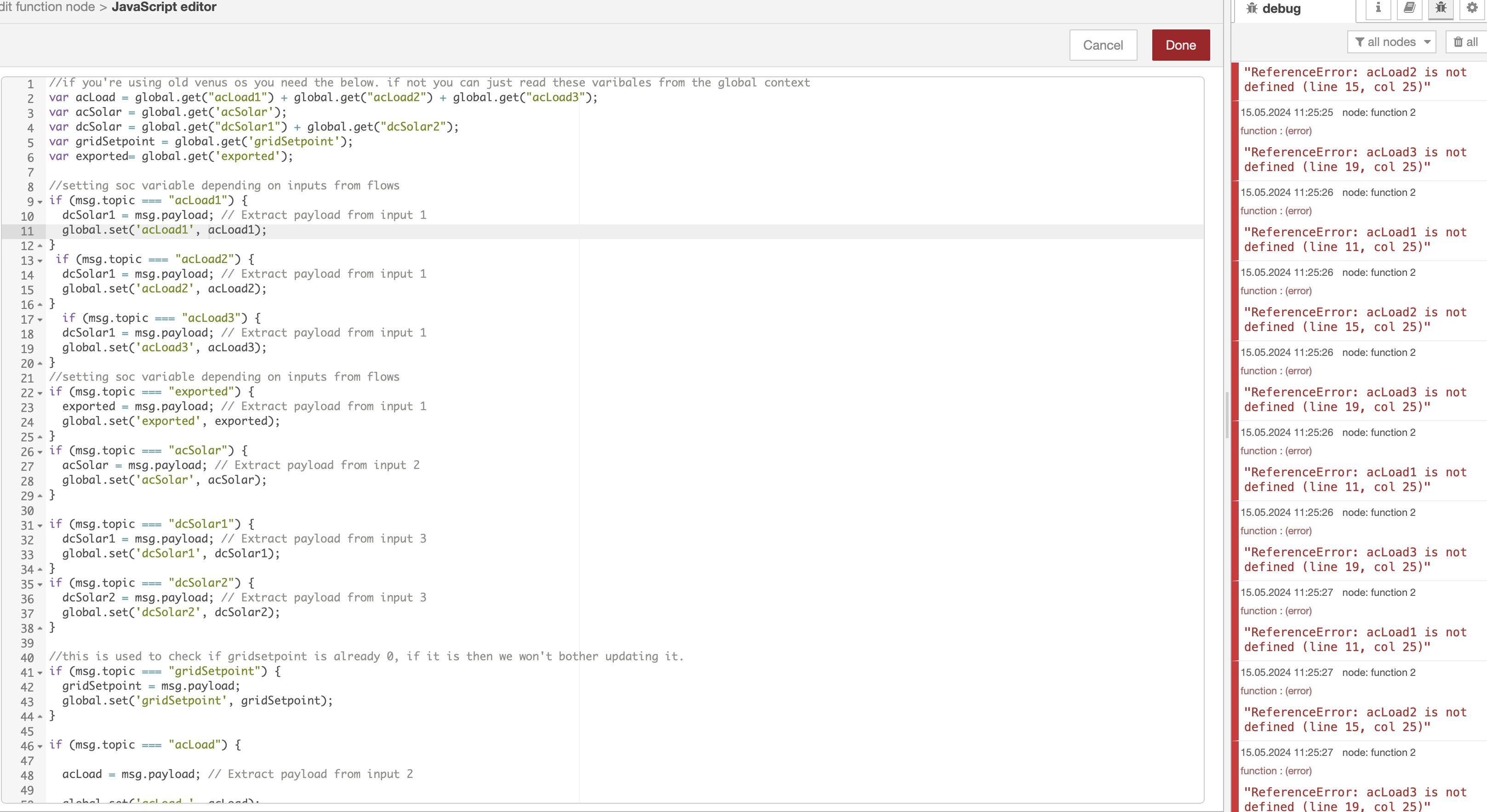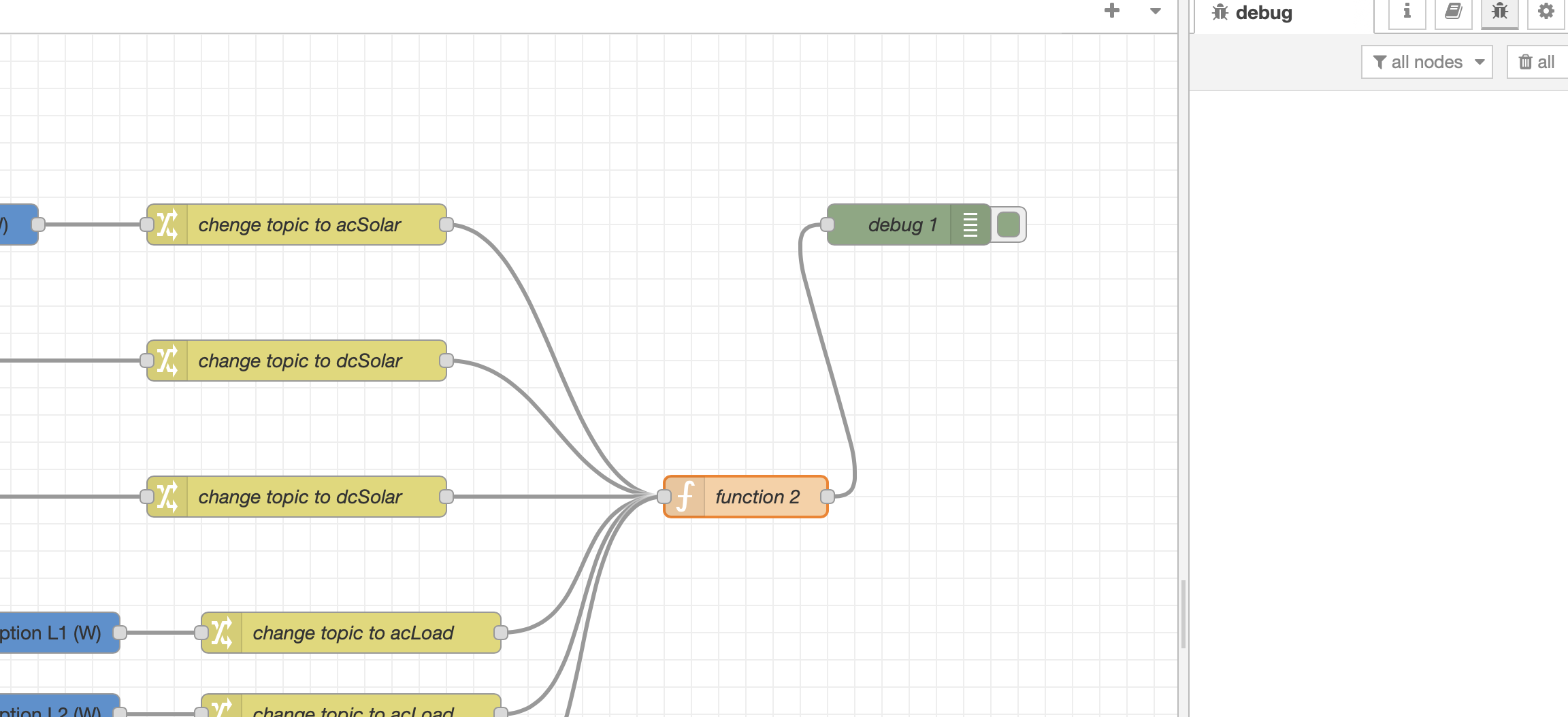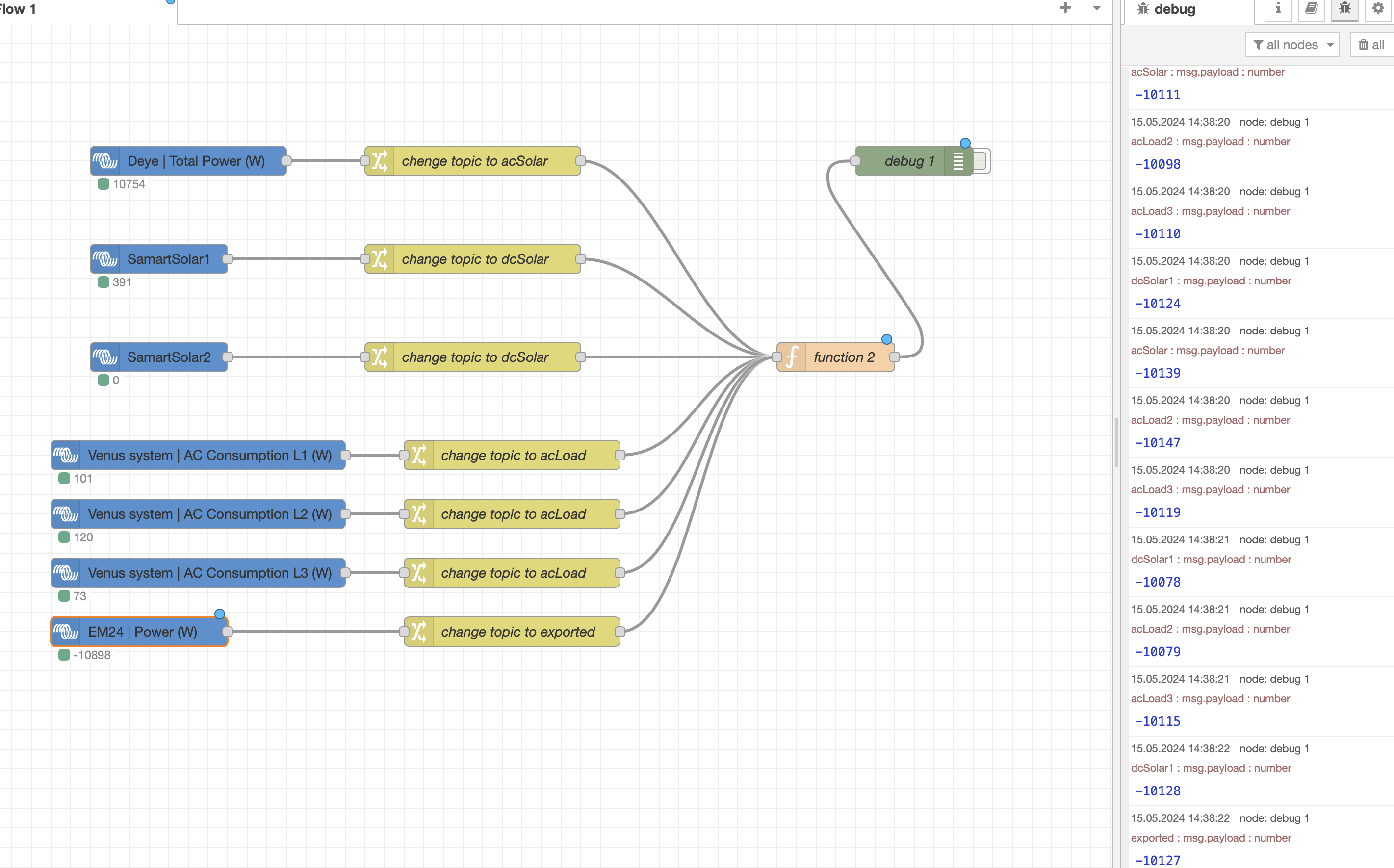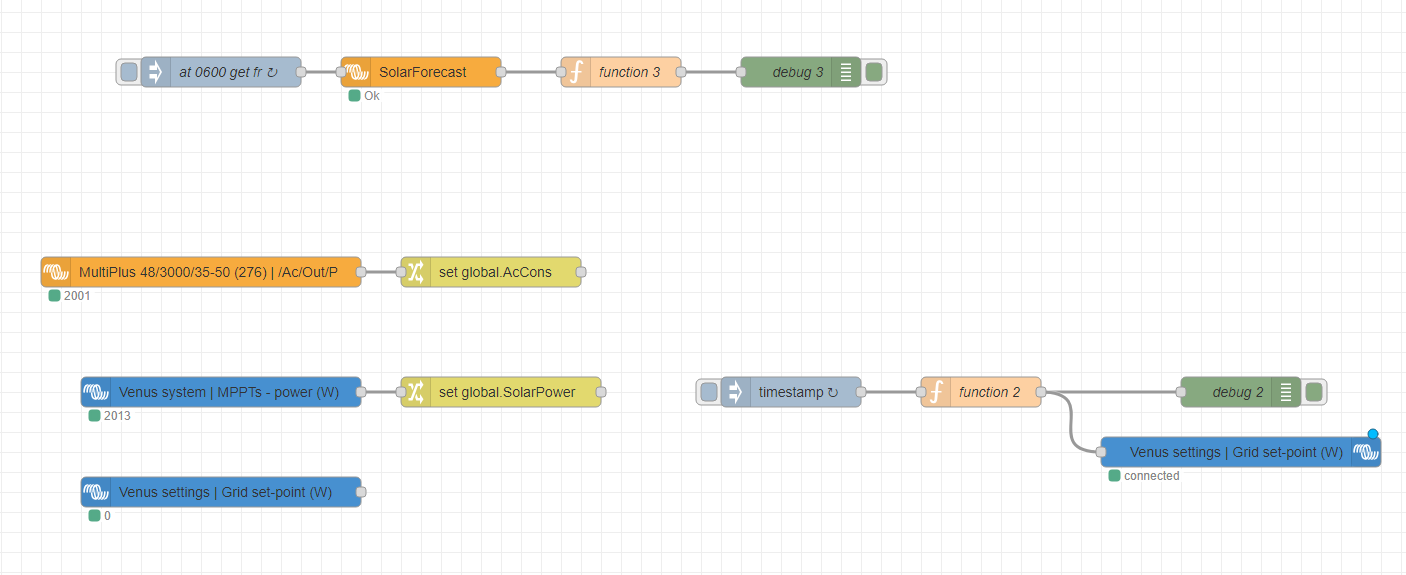Example below of how to achieve this:
what i want it to do is control whether to export to grid or charge the batteries based on time of day and battery SOC - and i want to be able to modify these 2 parameters easily
e.g.
If SOC > 50% and time is after 7pm send PV to grid.






